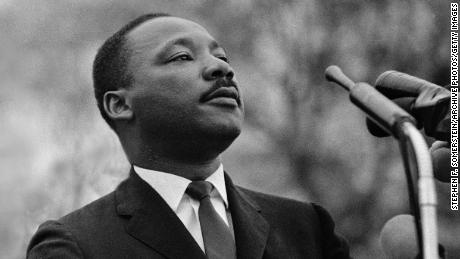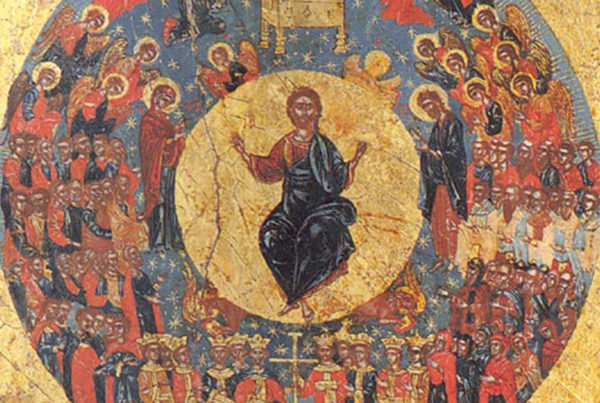I’m doing a bit of fasting during Lent, along with several other Bloomers. I am very much looking forward to what will occur in me (and us) through it.
Now fasting went on the shelf for me for a good long while. Was great at it in my teens and early twenties, became very poor at it in my mid-late twenties, and have only recently (last six months or so) begun to reclaim it as a central and core spiritual discipline for me.
I know of no spiritual discipline more disruptive than fasting. That is part of it’s power. We realize our great emotional and psychological dependency on food, which opens us up to an experience of learning that it is possible, really possible, to not “live by bread alone, but by every word that comes from the mouth of God.” That ushers us into a place of great stability and power. It is no surprise that following Jesus’ fasting and temptation, he goes into Galilee “in the power of the Spirit”, making manifest the Kingdom of God (Lk 4:14).
As I have reclaimed the discipline over the past several months, I have found it to be profoundly catalytic in terms of personal transformation. Moreover, perhaps coincidentally (though I think not), I have found my preaching to be richer, deeper, clearer, and more powerful on the weeks when I’ve fasted. Fasting puts me in a different frame of mind and soul. I am focused, and very sensitive to the Spirit, and to other people. I am less prone to self-aggrandizement and self-hatred, and feel myself when I fast very rooted in a another reality. My weakness becomes a source of great strength. Literally.
Having said that, fasting (from food) requires a bit of practical know-how. It can be as dreadful and awful as it is delightful. Here are a few quick tips–things I’ve learned over the last six months or so that I’ve found really helpful. If you’re doing any fasting for Lent, enjoy and share:
1) Don’t turn your fasting into a juice free-for-all. One of the biggest mistakes I’ve made with fasting in years past is that, in the absence of food, I tried to fill my grumbling tummy with tasty liquids of various kinds–orange, apple, grape juice; regular milk, soy milk, almond milk; coffee, tea, carbonated beverages. There have even been times I thought, “I bet I could get away with doing broths of various kinds.” Not so. Putting all that salt, sugar, caffeine, etc., into an empty stomach is a recipe for feeling like you want to die. Now I’ll drink a little tiny bit of juice in the morning, and perhaps a bit of almond milk or something (just to keep a little protein in my body), but beyond that, it’s mostly water (more on that below). What you need to be aware of here is where the impulse to drink lots of juice is coming from–namely, you’re trying to AVOID PAIN (which is counterintuitive to the discipline–more on THAT below as well).
2) Drink far more water than you think you need. Surprisingly, you’ll tend to dehydrate during fasting. And that dull, low-grade headache you feel can really make praying and thinking clearly a challenge. So drink lots of water. Since throwing plain ol’ water on an empty stomach can be really jarring, I suggest turning your water (whether hot, cold, or lukewarm) into lemon water, sometimes (but not always) sweetened up with a little honey. If you keep a steady stream of that flowing into your body all day long, you’ll avoid dehydration and stay “regular” (we’re talking about our bowels here people).
3) Slow your schedule down. Cut out unnecessary activities. Create more space for (slow) reading, meditation, reflection, journaling, prayer. You don’t have to cut ALL activities out. Actually, I’ve found that if I keep a few activities rolling, it deepens the experience, since part of what fasting is trying to teach me is how to stay profoundly rooted in my inner communion with God EVEN WHEN involved deeply in the affairs of life. So slow your schedule down, but don’t stop it.
4) Get more rest than you think you need. Your body is operating on substantially fewer calories. So take good care of it. Try to sleep a little bit longer. Sneak a nap here and there if you can. Dial back all strenuous activity. And for goodness sakes, DON’T EXERCISE. I know you think you’ll look really great in the gym with some of that water weight stripped off, but trust me, this one’s gonna backfire on you. Park your rear in a chair and read a book, man.
5) Stop rushing through it, and become friendly with your pain. One of the hardest things to do, and conversely, one of the best things we can train ourselves to do, is learning to get “lost” in an activity. Getting “lost” in an activity is the state of mind we get in when we’ve forgotten about time. We are present in the moment. Whether it be reading a book, exercising, listening to music, doing our work, spending time with friends… whatever – getting “lost” in what we’re doing is one of the most sublime experiences we human beings can have. Sadly, when we fast, often we become fixated on the moment we break the fast. And thus fasting becomes less transformative for us than it could be.
The way through this is by learning to get friendly with your pain. When the feelings of physical emptiness rise, you can embrace them… it ACTUALLY IS possible to let your feelings of physical emptiness lead you into an experience of inner emptiedness (“poverty of spirit” might be one way to say it) before the Lord. This is also why you shouldn’t fall into the trap of #1 above. Don’t run from the discomfort. Embrace it. This is a principle that applies to transformation at every level of our existence, whether we’re talking about getting in better shape or coming into deeper conformity with the person of Christ–we have to learn to welcome pain, get friendly with it, and press through it to joy. No transformation apart from that.
So that’s that. Hope it’s helpful. If you DO fast during Lent, I’d love to hear about your experience.
Peace
Andrew




I whole heartedly confirm the “richer, deeper, clearer, more powerful” preaching. So fasting not only blesses the one who undertakes the discipline, but others as well. The entire community, myself included, have been edified by the clarity and strength of the messages you have brought.
Oh gosh… thanks Amy!
Well said, and timely, Andrew. Was just talking about a need for some how-to’s, along with some heart-guidance. Thanks!
So I’m reading through your back-catalog. When I was a mega-church evangelical, we did the “when you feel the need, fast for 3 days” thing. So when we began to explore Orthodoxy, I expected extreme fasting (nothing but water, days on end) to be the norm. As you probably know, it’s a much more modest and consistent experience here. We end up keeping a fast about half the year, which consists of no meat, no dairy, no fish, no olive oil, no wine, with various modifications depending on the fast period. 40 days before Nativity, through Lent and Holy Week, about 2 weeks in June (The Fast of Peter and Paul) and about 2 in August (for the Dormition of the Theotokos — the falling asleep of the Mother of God). And almost every Wednesday and Friday. The Didache of the Apostles — a first-century collection of non-canonical teachings — says that the Jews fast on Tuesday and Thursday, but we are no longer Jews. So we fast on Wednesday because that is the day our Lord was betrayed — and we try to remember not to betray Him ourselves, and Friday because it was the day that He was crucified and trampled down death by death for our sake. And we do fast totally on Holy Friday, the day commemorating the beheading of John the Forerunner, the day before Theophany, and before every Liturgy (the body and blood of Christ is our first meal on those days). While the steady discipline of mindful eating is a critical spiritual practice, it’s real impact is found in those far-too-infrequent moments when fasting from food reminds us to also fast from sin.